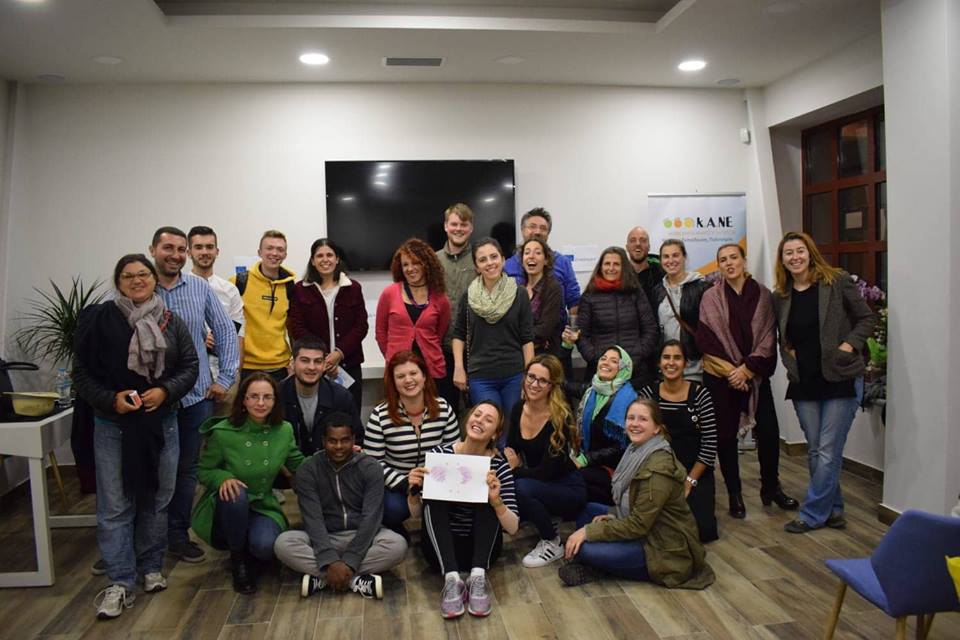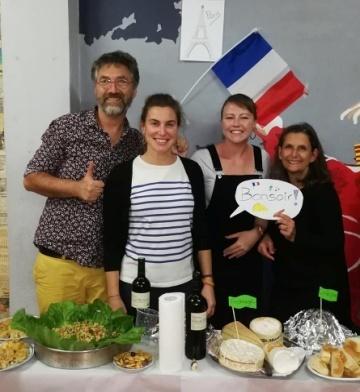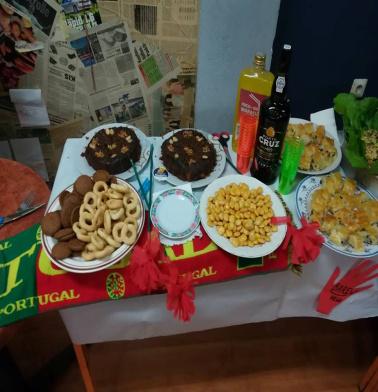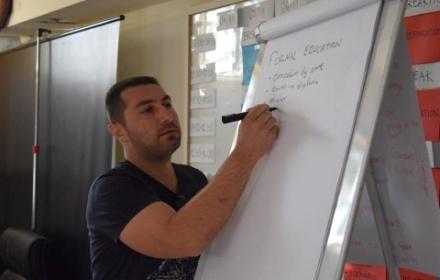The Erasmus + KA1 Project entitled “C.A.S.T: Community Building, Awareness Raising and Social Inclusion through Forum Theatre” − co-funded by the Erasmus + Programme of the European Union − has been initiated by the Greek non-governamental organisation K.A.N.E in partnership with the following non-governamental organisations and educational institutions from several European countries: Europski Dom Slavonsky Brod − Croatia; Baltijas Regionalis Fonds – Latvia; “Grigore Geamănu” Secondary School − Turcineşti, Romania; Younet – Italy; Centro Xuvenil Abertal – Spain; Loesje E.V. – Germany; Green Association − Bulgaria; Social Development for Youth – Cyprus; Rock Solid Foundation − The Netherlands. It took place from the 5th to the 10th of November 2018 in Kalamata, a beautiful city of great historical and cultural value, situated in Peloponnese peninsula, in southern Greece.

On the whole, the main aim of the project has been to explore the ways in which forum theatre can be used by youth organisations and by educational institutions to promote solidarity and social inclusion so as to contribute to the proper socio–professional integration of young people into society – as active citizens. By the end of the project, the twenty-four participants have been able to develop the eight key competences for lifelong learning promoted by the European Commission and have been familiarized with the technique of forum theatre and to the ways in which this technique can be used to empower young people. Last but not least, the participants have exchanged good practices on working with young people so as to be able to organize some socio-educational activities, particularly for young people with fewer opportunities.
The training course, based on the specific needs of the participants and of the partner organisations and educational institutions, have been conducted by the following European trainers having a vast professional experience: Filaretos Vourkos from Greece and Sara Andrade from Portugal. During the course, the trainers have created a supportive and safe learning environment, the participants being encouraged to express themselves and to take challenges, thus contributing to their personal, professional and organizational development. Indeed, special attention has been paid to making the learning points of the training course relevant, sustainable and transferable by means of specific templates given for tailor-made development and for action plans. Diversity in the group of participants has been considered as a resource for the exchange of good practices and special attention has been paid to the intercultural dimension of the project. In this sense, the participants had the chance to display food and beverages from their specific country or region at the Youth Centre of Kalamata on the last day of the course.



Overall, the training sessions, mainly participatory, have been centered on the use of forum theatre as an innovative method of non-formal teaching and learning. A concrete example of forum theatre has been performed by some course participants from Romania, Bulgaria, Spain, Germany and Latvia at the Cultural Centre of Kalamata and, to the surprise of the course participants, it has been very well-received by the audience. The method was firstly promoted in 1973 by the Brazilian director and dramatist Augusto Boal (1939-2009) who considered that theatre is not only a form of knowledge, but also a means of transforming society. Basically, forum theatre lasts approximately 10-12 minutes and it relates to an interactive type of theatre based on a real life oppression − usually connected to an abuse of power between people having some sort of relation.



The tension from the various scenes, ordered chronologically, rises gradually up to a crisis when the actors ‘freeze’ on the scene. At this particular point, the spectators are engaged in the play and they propose a different way of action for the protagonist, suggesting thus alternative outcomes and different solutions to social problems. A Joker facilitates the spectators’ interventions, enabling the creation of a dialogue, where the performance itself becomes a dynamic forum for debate. At the start of the performance, the Joker himself introduces the characters and the actions and provides the contextual information relevant to the play. As such, forum theatre crosses the boundary between the performers and the audience by inviting the spectators to be active participants in the play. At first, the performance is showed so that the public should understand the story and its ending; then the play is performed again, the public expressing beliefs to reduce or to solve the oppression depicted on stage.
All things considered, I believe that the dissemination of this Erasmus+ KA1 project will give readers a useful insight into the innovative method of forum theatre which can be implemented into educational institutions for various reasons such as: to raise students’ awareness of modern day issues − bullying, racism, xenophobia, intolerance, social exclusion; to promote the use English language in a meaningful context, closely connected to real-life; to motivate students to participate in a theatrical performance in which role-taking is used to enhance their understanding of social issues.
Prof. Popescu Mihaela
,,Grigore Geamănu” Gymnasium, Turcineşti,
Gorj, Romania



